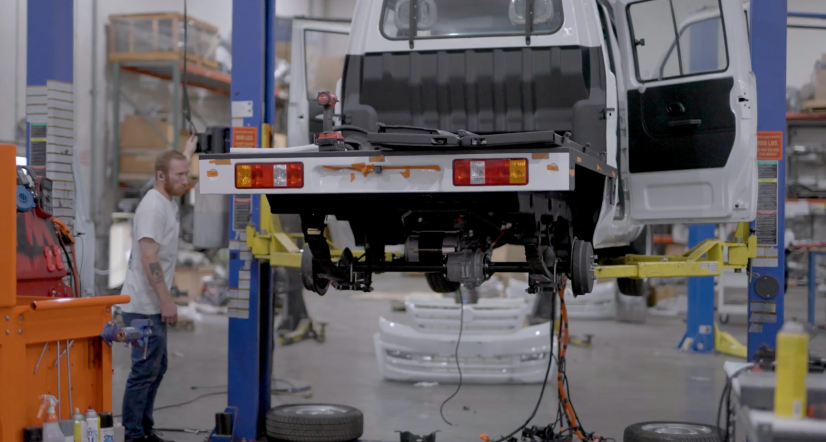The Role of the Beverage Cart at Athletic Events

The consumption of alcoholic beverages has become a common part of the fan experience at various types of athletic events. From college stadiums to professional arenas, many venues have responded to public demand by offering beer, wine, and sometimes additional alcoholic options as part of their concession services.
Yet with this opportunity comes serious responsibility. Ensuring responsible alcohol service, compliance with laws, and guest safety requires careful planning.
This guide provides venue managers, event coordinators, and concessionaires with a practical overview of alcohol policies and service strategies, while also exploring how modern mobile equipment, such as a beverage cart, can enhance sales efficiency on game day.
Legal Framework and Licensing
Before the first drink is poured, event organizers must comply with federal, state, and local laws that govern the serving of alcoholic beverages. Licensing requirements vary by jurisdiction, but in most cases, venues must obtain alcohol permits through their state’s Alcoholic Beverage Control (ABC) agency.
At the collegiate level, conferences like the SEC and NCAA enforce specific alcohol serving policies. For example, the NCAA Championship and Ancillary Event Alcohol Sales Policy permits the sale of alcoholic beverages at championship games, provided sales are conducted in compliance with state and local laws, limited to designated areas, and accompanied by conspicuous “Drink Responsibly” messaging.
Meanwhile, the SEC revised its alcohol policy in 2019 to allow member institutions to sell beer and wine in public areas of their stadiums, provided they follow conference guidelines, such as dispensing drinks only into cups and ceasing sales at pre-determined stop times (e.g., end of the third quarter for football games).
Licensing also requires verifying insurance, training staff, and ensuring the venue meets safety code requirements—particularly in outdoor or high-traffic athletic environments.
Best Practices for Responsible Alcohol Service
While policies vary, certain core practices are widely recognized as essential for responsible alcohol service at athletic events:
- ID Verification: All guests appearing under the age of 30 should have their age confirmed using valid identification.
- Per-Person Limits: Most stadiums cap alcohol purchases at one or two drinks per person per transaction to reduce overconsumption.
- Cut-Off Times: Games often have specific times when alcohol sales must stop—usually before the final quarter or period begins.
- Alcohol-Free Zones: Offering family-friendly, alcohol-free seating sections reduces the risk of incidents relating to the use of these substances.
These practices not only reduce legal exposure but also help preserve a positive fan experience for all.
Staff Training and Compliance
An effective alcohol serving policy begins with trained personnel. Staff who handle or supervise alcohol sales at athletic events should undergo service training, which typically includes:
- Recognizing signs of intoxication
- Techniques for refusing service to underage or intoxicated guests
- Procedures for handling disputes or policy violations
- Legal responsibilities associated with alcohol sales
In fact, many stadiums and governing bodies require food and beverage staff to complete certified training programs such as TIPS (Training for Intervention ProcedureS) or ServSafe Alcohol. Staff should also be well-versed in local alcohol laws and any venue-specific limitations, such as no alcohol zones or family sections.
Operational Efficiency: The Role of Beverage Carts

One often overlooked but highly effective way to streamline alcohol distribution is through the use of an outdoor beverage cart. These mobile units allow stadiums and athletic venues to:
- Reduce congestion at fixed concession stands
- Serve beverages directly in high-traffic areas such as tailgating zones, concourses, or seating sections
- Ensure cold drinks remain at optimal temperatures throughout the event
- Improve visibility and branding with customized carts
At larger athletic events—particularly outdoor or multi-field venues—mobile alcohol service can dramatically improve both the fan experience and concession revenue. However, these carts must also comply with licensing and safety protocols, including proper storage of alcoholic beverages and age verification practices. In some venues, these carts can legally operate only in restricted areas.
Security and Crowd Management
The serving of alcoholic beverages adds complexity to security planning. Alcohol can increase the risk of disorderly conduct, especially during rivalry games or high-stakes matchups. To reduce these risks, venue managers should consider the following:
- Assigning security staff to patrol alcohol-heavy areas
- Positioning staff near alcohol stands and carts to monitor behavior
- Coordinating with local law enforcement to enforce intoxication and tailgating laws
- Installing video surveillance in alcohol service areas
Designating alcohol-free zones and clearly marking policies on signage throughout the stadium can further reduce risks while maintaining a family-friendly environment.
A Balanced Approach to Alcohol Service

When properly managed, serving alcoholic beverages at athletic events enhances the guest experience, drives revenue, and helps create a festive game-day atmosphere. But the key lies in balancing accessibility with responsibility.
Vantage Vehicle’s beverage carts offer a reliable and professional solution for alcohol service at athletic events. Built on a durable low-speed vehicle (LSV) platform, each cart features a fully enclosed cab, full-sized truck bed, and optional amenities like backup cameras and power steering. Available in gas or electric models, these outdoor beverage carts are highly maneuverable and designed for safe, efficient transport and service in stadiums and other open venues.





